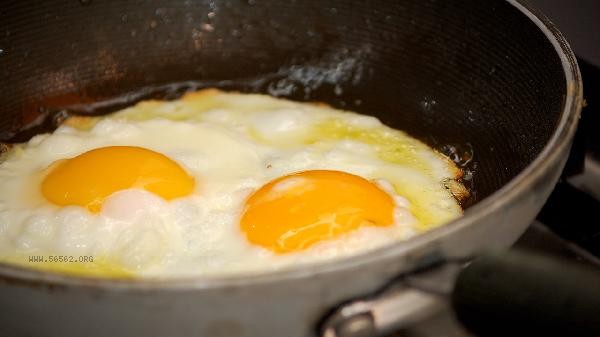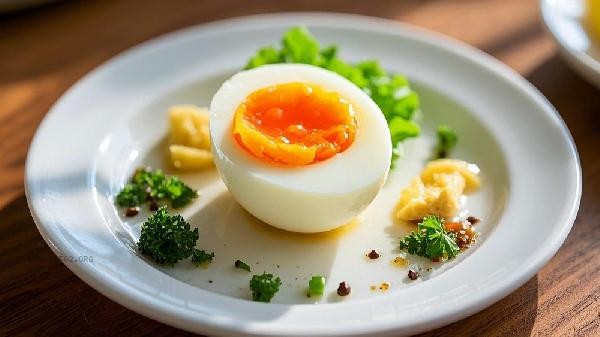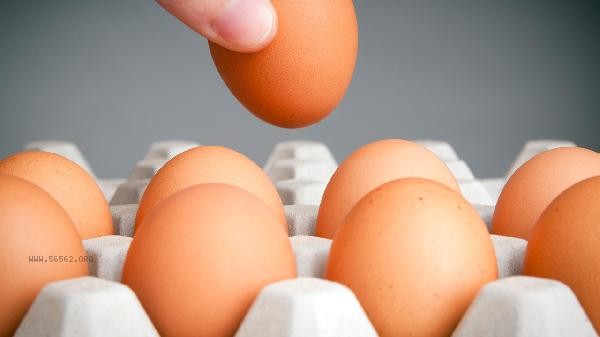The difficulty in peeling cooked eggs may be related to factors such as freshness, cooking method, and cooling method. The main reasons are high freshness of eggs, insufficient cooking time, inadequate cooling, adhesion of the inner membrane of eggshells, and abnormal acidity and alkalinity.

1. High freshness of eggs
The inner membrane of fresh eggs is tightly bound to the protein, making it difficult for the membrane to separate after cooking. After storing eggs for a period of time, the internal carbon dioxide is released, the air chamber increases, and the adhesion between the inner membrane and the protein weakens. Eggs that have just been laid for 3 days are significantly more difficult to shell than eggs that have been stored for a week. The freshness can be determined by observing the size of the egg chamber, and the larger the chamber, the easier it is to peel the shell.
2. Insufficient cooking time
Insufficient cooking time can lead to incomplete coagulation of the protein and strong adhesion to the inner membrane of the eggshell. Fully cooked eggs require boiling water for 8-10 minutes, while soft boiled eggs take about 6 minutes. When the protein denaturation is not sufficient during the cooking process, peeling off the shell can easily remove the protein. Using a timer to control the cooking time makes it easier to control the heat by adding eggs after the water boils.
3. Insufficient cooling
Peeling the shell immediately after cooking can cause different degrees of thermal expansion and contraction between the protein and eggshell, increasing the probability of adhesion. Soak the boiled eggs in ice water for 5 minutes, and use the principle of thermal expansion and contraction to make the protein shrink and detach from the eggshell. Cooling can also prevent the formation of grayish green ferrous sulfide on the surface of egg yolks, maintaining their beautiful color.

4. Adhesion of eggshell inner membrane
When eggs are stored in an environment with high humidity or subjected to compression, the eggshell inner membrane may adhere to proteins in advance. These types of eggs often have bumps and unevenness when peeled after being cooked. Pay attention to the integrity of eggshells when purchasing, and keep them dry and ventilated when storing. Before cooking, use a needle to pierce a small hole in the blunt end of the egg to help release steam and reduce adhesion.
5. Abnormal pH
Excessive mineral content in water or the addition of baking soda can change the pH value, affecting the separation effect of protein and eggshell. It is recommended to use filtered boiled eggs in hard water areas to avoid adding alkaline substances. Experiments have shown that peeling occurs most smoothly when the pH value is between 7-8, and both acidic and alkaline conditions can increase the difficulty of peeling.

To improve the peeling experience, you can try the following methods: choose eggs that have been stored for 5-7 days, boil them in boiling water for 10 minutes, turn off the heat, let them simmer for 2 minutes, and then immediately chill them. When peeling the shell, start from the air chamber end and it is easier to peel by flushing under the flowing water. Eggs are rich in high-quality protein, lecithin, and vitamin A. It is recommended to consume 3-5 eggs per week and pay attention to pairing them with vegetables and fruits to ensure a balanced nutrition. For people with weak digestive function, eggs can be made into egg custard or water boiled eggs for easier absorption.








Comments (0)
Leave a Comment
No comments yet
Be the first to share your thoughts!